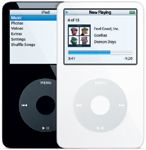Alternative Media: The Download on Podcasting
Electronic continuing medical education is one area that is primed for podcasting penetration.
All told, apple has sold 42 million iPod digital music players—76 percent of them in 2005, according to a speech by Apple CEO Steve Jobs at the 2006 Macworld trade show. Those are staggering figures for a technology that was originally conceived to simply propagate digital music sales. But it's now morphing into a powerful communications tool, creating more than just a new buzzword—"podcasting"—but a simple way to share audio and video content online.

Scott Burkette
Podcasts leverage the power of what's new, and pharma marketers can use that as a weapon to communicate brand messaging and educate physicians who aren't responding to their sales forces, are skipping live meetings or are simply too busy to listen to in-person marketing messages.
Some forward-looking pharma marketers have already jumped on this trend, leveraging podcasts to reach increasingly elusive physicians who have little time for a conference, continuing medical education program, dinner meeting, or detail.
Electronic Continuing Medical Education (eCME) Medical education is one area that is primed for podcasting penetration. Physicians have to earn mandatory credit hours every year, and the podcast-subscription model is an ideal way to facilitate the process.
Medical-education partners can notify physicians when new eCME podcasts are available. These physicians and other healthcare professionals can quickly download the ones they are interested in, and listen to them while they are on the go.
To make the program effective and receive credit, physicians should be provided with a downloadable post-podcast test that they could submit via e-mail to the CME organization.
Online medical conferences Podcasts give time-challenged doctors a high-tech, easy way to participate in medical conferences, all from the comfort of their office or home computer. Indeed, the technology allows doctors to attend live medical roundtables, panel discussions, and conferences happening anywhere around the globe, by simply downloading content. And because podcasts can be archived for months, physicians and other healthcare professionals can experience previously aired sessions, in personal-library fashion, when it's most convenient for them.
In addition, physicians can be directed to secure sites to subscribe to a podcast to peruse remote promotional content. This would be for material that should not be widely distributed to a consumer audience. In other words, podcasting offers convenience and control over audience and distribution.
A Captive Audience
In order to educate physicians, marketers need to engage them first. If marketers can meet that challenge using new technology, they'll create a new avenue through which they can communicate brand messages to the professional marketplace.
Podcasts create a sense of personal attention because the RSS-based subscription model allows physicians to pick what content they want, when they want it, and how often they want it. They can really take control of the information distributed by the pharma company, which helps create a more captive audience for targeted physicians. In other words, podcasts are not just Web-based programs, but rather dynamic, interactive experiences complete with streaming audio and video. Healthcare professionals can come together for highly compelling programs that can be viewed anywhere. Moreover, podcasts can and should be customized to captivate and educate audiences with a genuine one-on-one learning experience.
This more personalized approach can help pharma marketers re-establish personal relationships that have gone the way of the in-office drug detail by pushing new content that's of interest to each physician. This is more effective than waiting for them to find a specific Web site, or other portal, and pulling the information from there.
Clearly, online solutions provide marketers with an innovative, cost-effective way to deliver their messaging, and podcasting is a natural evolution in the process. Even though podcasting is still in its infancy, it's easy to see the utility and the potential applications and reach of this tool.

Vehicles to Reach Physicians
Podcasts help marketers to create an audience. This additional reach is attained by providing an easy way to access important and credible clinical content. Moreover, podcasts dramatically increase ROI because the overhead of creating a podcast is just a fraction of the cost of putting on traditional live events or making sales calls. Typically, a podcast saves marketers over 80 percent in cost when compared with traditional promotional and educational tactics.
Podcasts increase conference participation and impact, while decreasing expenses and logistical headaches. With anytime/anywhere access, podcasts make it much easier to sandwich a CME course between Bruce Springsteen records.
The Pharma Marketers Guide to Successful Podcasting
It's fairly easy to make a good podcast. However, it takes a little more effort and planning to make a great one. Here are some key tactics to keep in mind.
1 Plan ahead to maximize time and efficiency Podcast subjects are very busy people and the production process can be time consuming. A good approach is to work with the podcast's KOL ahead of time to flesh out several topics. That way, marketers can maximize the time by creating an educational series in just a day. Working ahead also gives ample time to create, edit, and distribute the podcasts as a serial broadcast.
2 Use high-quality equipment To make a podcast stand out, always use high-quality, professional equipment. Compression for distribution over the Web can lower the quality, which is why it's crucial to start with the best. Be certain to recruit trained, experienced crews to ensure that materials fit the technical requirements of a podcast, and can be adapted to fit other specification formats, such as marketing DVDs or video.
3 Leverage podcasting platforms Podcast providers like Apple's iTunes—the most popular podcasting host—let users subscribe to podcasts that are of particular interest to them using RSS feeds. If viewers don't have iTunes, they can download podcasts directly from a company Web site and view them on different platforms, such as QuickTime and Windows Media Player.
Podcast Penetration
Podcasting offers consumers another avenue to research drugs and medical conditions. The Web is one of the biggest resources for non-physicians to find medical information, and podcasting is just another extension of the Internet. Podcasts can be established as "webisodes," such as a serial health show with a credentialed host.
Non-branded podcasts are especially effective, because they get the marketing message across, while still educating the user. Given tech-savvy consumers' passion for adopting the latest gadgets, and their inclination to research medical information online, podcasting is a smart next step for marketers.
Consumers can expect a variety of podcasts on multiple disease states and therapeutic categories, such as diabetes, cancer, and heart disease. What are they already listening to now? Tune into the Science and Medicine podcast section of the iTunes Music Store, which offers content from over 100 podcast publishers, including JAMA, Science, Nature, NEJM, and the Mayo Clinc.
Scott Burkette is director of content development for Lathian. He can be reached at sburkette@lathian.com

The Misinformation Maze: Navigating Public Health in the Digital Age
March 11th 2025Jennifer Butler, chief commercial officer of Pleio, discusses misinformation's threat to public health, where patients are turning for trustworthy health information, the industry's pivot to peer-to-patient strategies to educate patients, and more.
Navigating Distrust: Pharma in the Age of Social Media
February 18th 2025Ian Baer, Founder and CEO of Sooth, discusses how the growing distrust in social media will impact industry marketing strategies and the relationships between pharmaceutical companies and the patients they aim to serve. He also explains dark social, how to combat misinformation, closing the trust gap, and more.